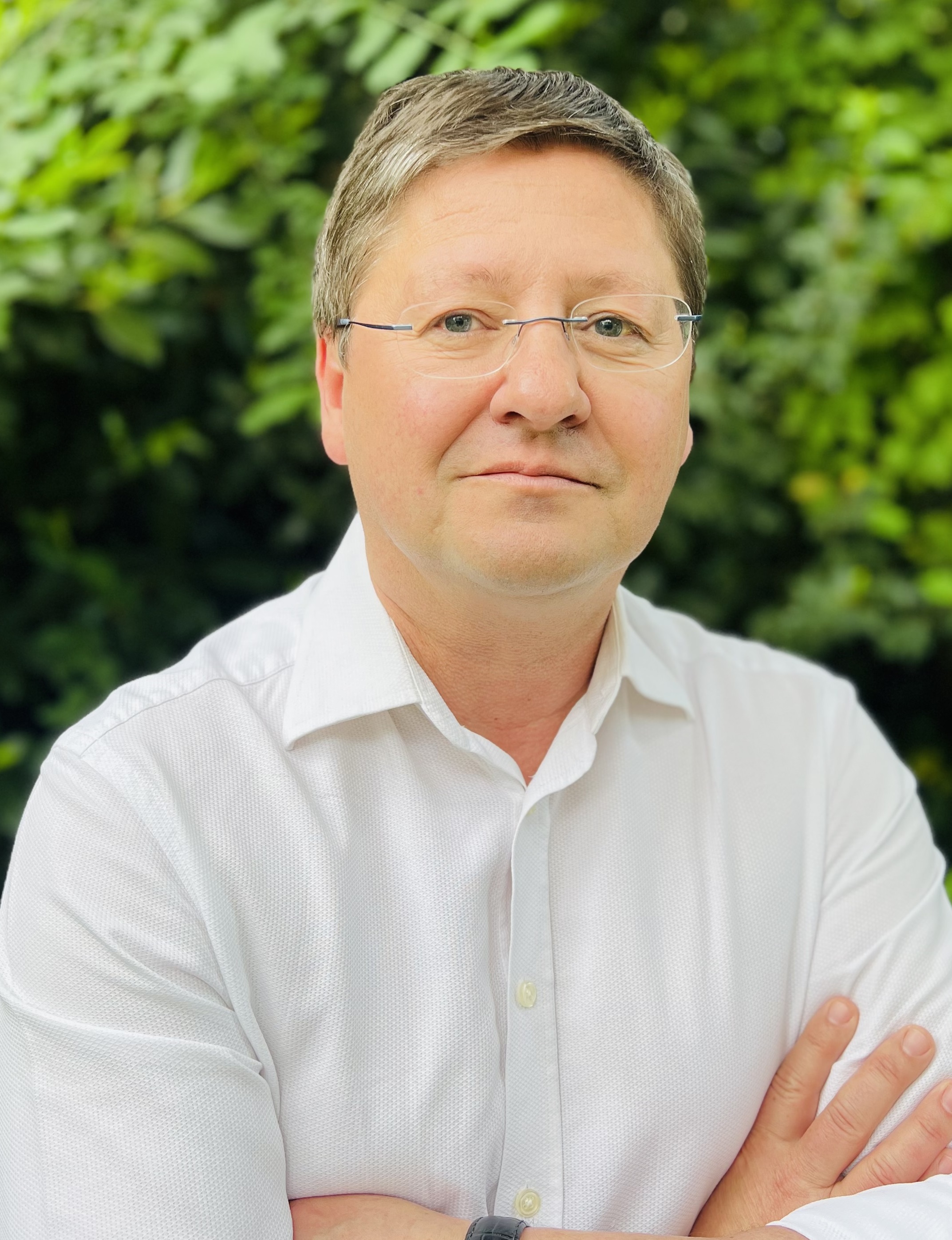Conferenciantes invitados
“Transition Metal-Catalyzed Addition of Pronucleophiles to Alkynes and Allenes: An Atom-Efficient Alternative to the Tsuji-Trost Reaction”
Prof. Bernhard Breit: (Institut für Organische Chemie, Freiburg i. Bg., Germany)
 |
Bernhard Breit se licenció en la Universidad de Kaiserslautern (Diplom, Dr. rer. Nat.). Tras realizar estudios posdoctorales en la Universidad de Stanford, se incorporó a la Universidad de Marburgo para obtener su habilitación y fue nombrado catedrático de Química Orgánica en la Universidad de Heidelberg. Actualmente es catedrático de Química Orgánica en la Albert-Ludwigs-Universität de Friburgo. La investigación del profesor Breit en síntesis orgánica y catálisis incluye estudios pioneros sobre conceptos supramoleculares en catálisis homogénea y el desarrollo de nuevas reacciones catalíticas para la formación de enlaces atómico-económicos. Es autor de más de 250 publicaciones. |
|---|
“Phosphine Ligands on Metal Nanocatalysts: Friends or Foes?”
Dr. Sophie Carenco (Laboratoire Chimie de la Matière Condensée de Paris, Sorbonne Université, France)
 |
Licenciada por la École Polytechnique, Sophie Carenco se doctoró en 2011 en el UPMC de París. Tras una estancia posdoctoral en el Laboratorio Nacional Lawrence Berkeley (California, EE.UU.) en 2012-2013, fue nombrada en 2014 investigadora del CNRS en el Laboratorio de Química de la Materia Condensada de París (Universidad de la Sorbona, CNRS, Colegio de Francia). Trabaja en nuevas rutas sintéticas para nanopartículas de metal, fosfuros, carburos y oxisulfuros. Investiga las propiedades ópticas y magnéticas de las nanopartículas, así como su reactividad en procesos catalíticos como la hidrogenación y la activación de CO2. Desde 2018, estudia gracias a una ERC Starting Grant la activación de pequeñas moléculas en la superficie de nanopartículas recubiertas con ligandos orgánicos. Su trabajo ha sido recompensado con varios premios, entre ellos el Premio Europeo para Jóvenes Químicos (2010), la beca L'Oréal-Unesco (2014), la medalla de bronce del CNRS (2018), el Premio Joven Químico de la división de Química Física de la SCF-SFP (2018), el Premio Clara Immerwahr del consorcio alemán UniSysCat (2020) y el Premio Joven Químico de la División de Catálisis de la Sociedad Francesa de Química (2021). |
|---|
“Never an empty orbital gave for so much reactivity: the boron'ate' versus borata history”
Prof. Elena Fernández (Rovira i Virgili University, Tarragona, Spain)
 |
Elena Fernández se licenció en Química por la Universidad de Barcelona en 1991. Realizó estudios de doctorado en hidroformilación catalítica de azúcares con el Prof. S. Castillón (1991-1995) y se trasladó a la Universidad de Oxford (Reino Unido) (1995-1997) para realizar una estancia postdoctoral con el Prof. John M. Brown, donde sus estudios culminaron con una aproximación a la primera reacción catalítica de hidroboración-aminación asimétrica. Elena aceptó en 1997 una plaza de profesora en la Universidad Rovira i Virgili, pasando a formar parte de la plantilla permanente en 2000 y a ser Profesora Titular en 2019. Recibió el Premio a la Excelencia Investigadora en Química Organometálica 2014 y el Premio a la Excelencia Investigadora en Química 2017, ambos de la Real Sociedad Española de Química. Es Profesora Distinguida de la URV desde 2018. Su actual campaña científica está dirigida a generar conocimiento y conciencia sobre los modos de activación de los reactivos de borano para ser utilizados en la síntesis selectiva de compuestos multifuncionales. Ha contribuido en más de 150 artículos seminales, revisiones y capítulos de libros, destacando la edición de dos libros sobre Synthesis and Applications of Organoboron Compounds para Springer (2015) y Advances in Organoboron Chemistry toward Organic Synthesis para Science of Synthesis-Thieme (2019). |
|---|
“Enzymatic hydronitration: a unique reaction in the biocatalytic repertoire”
Prof. Mélanie Hall (Institute of Chemistry, University of Graz, Austria)
 |
Mélanie Hall es profesora adjunta de química sintética bioorgánica sostenible en el Instituto de Química de la Universidad de Graz (Austria). Obtuvo su máster en química en 2004 en la Escuela Nacional Superior de Química (ENSCR) de Rennes (Francia). A continuación se trasladó a Austria para realizar sus estudios de doctorado y se formó en el campo de la biocatálisis en el grupo del profesor Kurt Faber de la Universidad de Graz (doctorado en 2007). Realizó una investigación posdoctoral con el profesor Andy Bommarius en el Georgia Institute of Technology de Atlanta (EE.UU.) en el campo de los biocombustibles de segunda generación, y estudió los cuellos de botella en la descomposición enzimática de la celulosa. Regresó a Graz a finales de 2010 y obtuvo su habilitación en química orgánica en 2016. Su investigación se centra en el desarrollo y la aplicación de enzimas para la síntesis sostenible, con especial atención a las reacciones asimétricas y la comprensión de la catálisis enzimática a nivel molecular. |
|---|
“A computational view on polymetallic homogeneous catalysis”
Prof. Feliu Maseras (Institute of Chemical Research of Catalonia, Tarragona, Spain)
 |
Feliu Maseras estudió en la Universitat Autònoma de Barcelona (UAB), donde terminó su doctorado en 1991. Tras trabajar en Okazaki con el profesor Keiji Morokuma y en Montpellier con la profesora Odile Eisenstein, obtuvo un puesto permanente en la UAB en 1998, desde donde se trasladó a su puesto actual en el Instituto de Investigación Química de Cataluña (ICIQ) en 2004. Su principal tema de investigación es la catálisis homogénea computacional, con interés reciente en el acoplamiento oxidativo, la transferencia de un solo electrón, la simulación microcinética y los tratamientos estadísticos. |
|---|
|







